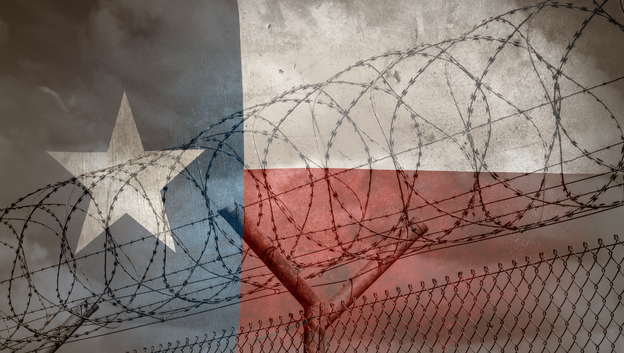
Currently in Texas, immigrants caught crossing the border illegally can volunteer to be put on charter buses, which are primarily paid for by Texas taxpayers. These immigrants are then securely bused to either Washington, D.C., or New York City.
This is the reality for Texas taxpayers caught in the political gamesmanship between Republican Texas Governor Greg Abbott and the Biden administration.
How Did We Get Here?
In April, in response to a rapidly growing number of illegal crossings and the federal government’s reluctance to curb such activity, Texas Governor Greg Abbott announced a controversial plan that included chartering buses to send immigrants caught crossing the border illegally to Washington, D.C. This plan was later expanded to include New York City, once what has come to be known as “Title 42” or the “Remain in Mexico Policy” was officially ended by the Biden administration.
The federal government's refusal to address the border crisis is what's truly "horrific."
Texas will send buses to Washington D.C. & New York City until Biden does his constitutional duty & secures our border.https://t.co/yhmlaF74UQ
— Greg Abbott (@GregAbbott_TX) August 8, 2022
On the surface, this stunt makes it appear as though the State of Texas is taking the lead in the absence of action by the federal government. But what is the impact of this policy on Texas taxpayers?
According to state records obtained by NBC 5 in Dallas-Fort Worth in early June, the cost per bus rider was more than $1,400. For comparison, that is more expensive than a first-class plane ticket from many of the cities located on the Texas-Mexico border to Washington, D.C. Much of that cost actually comes from the hired security for each bus.
To offset this cost, Abbott pledged to raise funds via private donations to ensure that the impact on Texas taxpayers was minimal. As of July 22, however, the state had only collected $118,297 for this effort. That is just a drop in the bucket compared to what this policy has already cost taxpayers (nearly $7 million).
Moreover, Abbott has caught the ire of many Texas conservatives who take issue with what can best be described as further enabling illegal immigration by busing them further into the country—as opposed to back across the border itself—for nothing more than a political statement.
Political Noise
It is difficult to gauge the impact of policies at both the state and federal levels due to the surrounding political noise, which is often an exercise in performative political partisan theatre.
The “Remain in Mexico” policy implemented under the Trump administration was officially ended in early August, after its termination was delayed awaiting adjudication by the U.S. Supreme Court. Shortly after the U.S. Supreme Court ruled on the matter, a U.S. district judge placed a brief and temporary injunction that halted the policy even further. Mere hours after the injunction was lifted, the U.S. Department of Homeland Security officially announced their plans to end the policy, meaning anyone currently waiting in Mexico for their hearings could instead do so in the United States.
Shortly before the busing policy was implemented, we reported on whether the juice had been worth the squeeze when it comes to what was already being spent on the ongoing state border security funding effort through Operation Lone Star. In the most recent legislative sessions, the Legislature appropriated upwards of $3 billion for border security efforts, an unprecedented amount. In late April, an additional $495.3 million was appropriated to continue funding those operations from elsewhere in the state budget. In early July, Abbott’s office announced an additional $30 million would be allocated to the efforts of the governor’s public safety office. For those keeping track, the price tag for state border security efforts is near $4 billion.
Many local elected officials along the Texas-Mexico border and conservatives across the state continue to call on Abbott to declare an invasion, which would allow him to expel those caught coming across the border. Thus far, Abbott has been reluctant to do so, and the political gamesmanship has continued.
What Does It All Mean?
It cannot go without saying that there is an ongoing gubernatorial election in Texas; this undoubtedly affects which policy decisions are implemented. It is also possible that political undertones exist in preparation for politics beyond that of just the Texas governor’s mansion, as has long been rumored by political insiders.
As the Texas Legislature gets set to convene in January of 2023, they will do so after having conducted multiple studies on the impacts of Operation Lone Star, per their own interim committee charges as set by both the state Senate and House of Representatives. This will undoubtedly drive policy priorities related to this issue throughout the legislative session.
The fact is that billions of taxpayer dollars are already being allocated to supposedly secure the Texas-Mexico border via Operation Lone Star, whose metrics for success are dubious at best, given that the goalposts are loosely defined.
Ultimately, time will tell whether the unprecedented billions of dollars spent by the State of Texas (i.e., Texas taxpayers) have strengthened our border or whether a shift in strategy is necessary to turn the tide of illegal immigration and save taxpayers money along the way.




